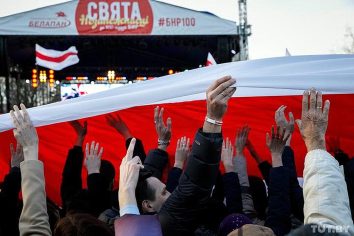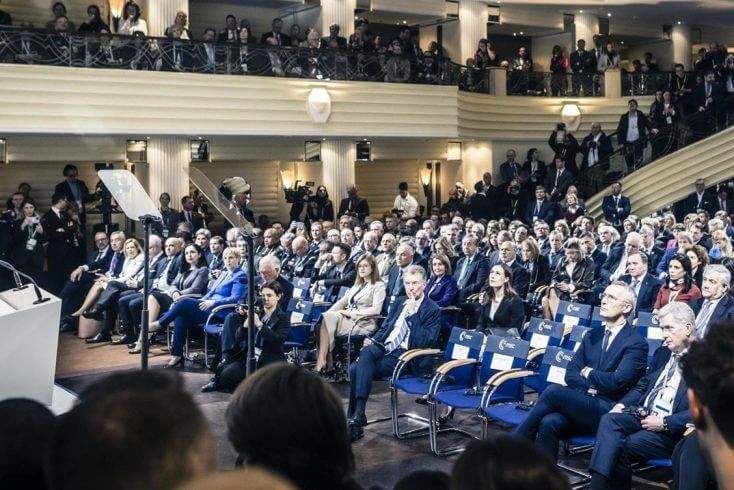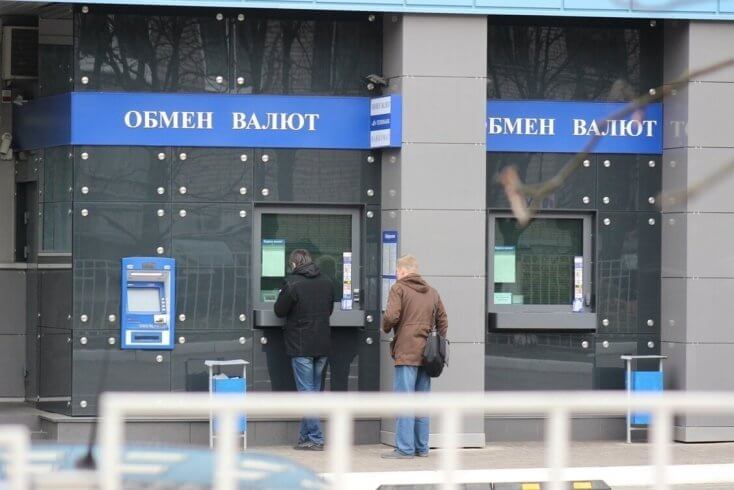Alaksandar Łukašenka lambasted his opponents in his inauguration speech on March 25. The opposition, sticking to outdated tactics, may need to rethink its strategy.

Łukašenka’s jab: strength or desperation?
In his address, Łukašenka made it clear that he does not regret the thousands of Belarusians who fled the country for fear of persecution. “Thanks to you, who sold the homeland for grants, or rather, in spite of you, we have become stronger. . . . You taught us to value and defend what we have.”
The opposition, in turn, rightly accuses Łukašenka of ceding elements of sovereignty to Moscow. However, some of their more dramatic claims are based on unfounded assumptions.
For example, Śviatłana Cichanoŭskaja, the prominent pro-democracy leader in exile, described the inauguration ceremony as a “desperation-fueled show by a regime trying to convince the people of their support.”
Her view—that Łukašenka can only inspire sycophants and create an illusion of power while his officials and security forces are intimidated into submission, waiting for his regime to collapse—seems off-base.
While it is true that the January election lacked competition and transparency, with Łukašenka effectively extending his rule, he does not appear desperate. His regime is far from unstable.
The government was shaky during the 2020 protests, but since then, Łukašenka has solidified his grip through repression and with substantial support from Moscow. The regime has grown stronger, as he himself claimed, and has enough resources to continue his rule.
Desperate? Quite the opposite. After recovering from the shock of 2020 and the uncertainty at the start of Russia’s war on Ukraine, Łukašenka seems to be in a comfortable position. His opposition is fragmented, the economy is growing despite sanctions, and he stands to benefit from a potential ceasefire negotiated by US President Donald Trump and Russian President Vladimir Putin.
Are security forces intimidated? Perhaps, but many enjoy impunity, privileges and career advancement. This is evident, and it is unclear why opposition leaders continue pushing this misleading narrative.
Some might argue I’m overemphasizing a few of Cichanoŭskaja’s remarks. However, her rhetoric—widely cited by the media—reveals a serious issue: opposition politicians are still clinging to the momentum of 2020, failing to understand the rapidly changing political landscape.
Sanctions have failed
After failing to unseat Łukašenka in 2020, the opposition heavily relied on sanctions, hoping they would either topple the regime or force it to concede ground. Against all expectations, the regimes of Putin and Łukašenka have persevered. While the sanctions have caused some damage, especially in terms of access to technology, they have not significantly weakened Moscow or Minsk.
Moreover, the sanctions have only tied Belarus more closely to the Kremlin, stripping it of what little sovereignty it had left.
The effectiveness of sanctions is debatable, but the opposition has little chance of further tightening them. On the contrary, Łukašenka and Putin are pinning their hopes on Trump to lift some restrictions, including restoring Russian banks’ access to SWIFT and enabling food and fertilizer exports. Trump, known for his deal-making, could be open to such negotiations, and Łukašenka is eager to capitalize on this.
If Russia and Ukraine agree on a ceasefire, Moscow and Minsk will push for the complete lifting of sanctions. So rather than increasing pressure, a relaxation of sanctions is more likely.
Exiled leaders do have some leverage, but not when it comes to sanctions. Western politicians—no matter how much opposition leader Pavieł Łatuška criticizes their lack of resolve—will act based on their own interests.
The demand for the unconditional release of political prisoners has also proven ineffective. Expectations that the regime would fall and all prisoners would be freed have not materialized. Perhaps, while sanctions remain in place, partial lifting could be exchanged for the release of some prisoners.
This would nott betray the cause; repeating slogans is not resistance—it’s imitation.
Opposition leaders should focus on what can benefit Belarusians now: advocating for the interests of emigrants in their host countries and pushing for greater mobility for those trapped in Belarus.
Mobility, not isolation
It’s crucial to consider the side effects of sanctions. No matter how targeted, they affect not only the authorities but also ordinary people, including democracy supporters both in Belarus and abroad.
Sanctions will not provoke the hunger riots needed to threaten the regime, while shortages and rising prices for goods and medicines may lead many to direct their anger at the opposition.
In the past, Belarusians received more Schengen visas per capita than nationals of other countries. They traveled to Europe and witnessed the benefits of democracy versus dictatorship. This was one of the driving forces behind the massive anti-Łukašenka protests of 2020.
Today, however, Belarusians find it much harder to obtain visas to Europe. Western sanctions have effectively isolated them from the democratic world.
EU neighbors have found it easier to impose blanket restrictions on all Belarusians rather than trying to distinguish between regime supporters, opponents, and those who remain politically neutral.
A particularly striking example is Lithuania, where politicians have repeatedly proposed uniform measures against nationals of Russia and Belarus, exaggerating the “Belarusian threat.”
An iron curtain has already descended, rendering the message of a European future for Belarus irrelevant.
Therefore, politicians should advocate for greater mobility for Belarusians, including restoring rail and air passenger services with Europe. Visa issues could also be resolved if Western ambassadors returned to Minsk.
This would not confer legitimacy on Łukašenka. In the eyes of his supporters, he is already a legitimate ruler; to his opponents, he remains a usurper, and Western officials know exactly who he is.
Time for realistic approach
After Ukraine successfully repelled Putin’s blitzkrieg, some commentators suggested the opposition should organize an armed resistance group made up of the Kastuś Kalinoŭski Regiment (KKR) and Belarusians who supported the Pieramoha Plan to defeat Łukašenka’s security forces.
Some stressed the need to establish a new center for Belarusian pro-democracy forces in Kyiv, while opposition figures based in Vilnius and Warsaw sought to curry favor with KKR commanders.
However, the KKR is under Ukrainian command, and despite the heroism of its soldiers, it cannot play a significant role in Belarusian politics.
The Pieramoha Plan, which involved thousands signing up for a concerted anti-regime uprising, is now outdated. Its architect, Alaksandar Azaraŭ, has left the opposition to start a detective agency in Warsaw.
It is clear that, in the near future, it will be impossible to overthrow the regime through sanctions, an uprising inside the country, a military invasion, or a combination of these strategies. It is time to abandon these ideas.
What alternative scenarios exist? That is a question for frank, honest discussions.
Meanwhile, speechwriters continue to write speeches for Cichanoŭskaja full of clichés like “the people of Belarus are groaning under the yoke of dictatorship.”
In reality, opposition forces should focus on reaching out to different segments of the population. They must let go of the illusion that regime change will happen quickly.
This process could take decades, so strategies should be flexible and designed for the long term.
It is time for a realistic assessment of the opposition’s forces and an honest discussion of how to move forward.
The idea of building a government-in-exile with agencies mirroring those in Belarus, but based on the “right” principles, is increasingly untenable. That plan was based on a short-term expectation of a second wave of revolution. However, that wave never materialized, and now the government in exile clearly needs restructuring.
There is no real separation of powers, not only in Łukašenka’s system but also within the opposition’s government-in-exile. The Cichanoŭskaja Office dominates over the United Transitional Cabinet and the Coordination Council, despite earlier claims that it would be accountable to the latter.
Furthermore, the government in exile lacks real power, as illustrated by the failure of the New Belarus Passport project.
The New Belarus 2025 conference, if organized, should facilitate a principled discussion on what to do under the new and rapidly changing conditions, which pose new challenges.




